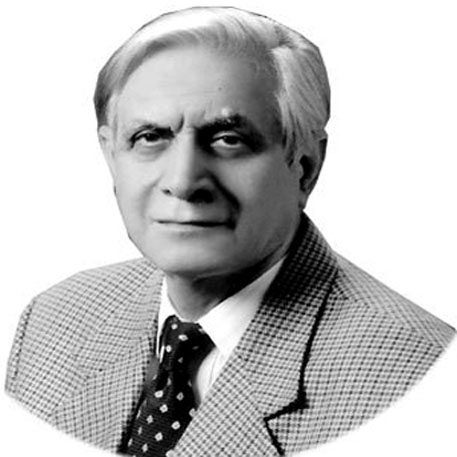Tariq Khalil
IN THE last three decades we observe rise of corporate power in Pakistan. It has altered not only the direction of the country but has impacted the very way of life. Corporate interest groups penetrated in to political corridors. In the realm of history, in every country, there has been always Corporates which prevail. The concept of corporate power emerged from Europe in the 16th Century, firstly when Vascodegama embarked on a few ships financed by bankers to explore new world and ended up discovering America. The cruelty and massacre that followed by invaders in these lands are now part of history. East India Company was established on 1st December 1600 by John Watts and George White. In the 17th century they embarked to do business in India, Dutch were already operating in India in spice business, so were Portugal’s traders on coastal area. This made British to trade inside India and got permission to establish Trading House. From this small beginning they established their hold in Bengal. The security guards kept were later converted in to Private Army consisting of locals. Through palace coup they defeated Sirajuddula in the battle of Placey in 1757, largely financed by Hindu financiers who felt British were better for them than tyrant Siraj and Muslim rulers. Company’s corporate setup was successful by making Indians fight among themselves and eventually Delhi fell in 1803. Rest is history. This was greatest corporate takeover in history. Company rule ended in 1857.
Japan saw the rise of corporate power which consolidated itself after World War II. Yakuza virtually ruled Japan as criminal gangs between early 17th Century to end of 19th Century. It was followed in with the Japan’s rise as industrial state. After WW-II they penetrated deep into economy, controlled parallel economy (black money) and were major influencing factor in the make and break of governments. Korea after rise of modernisation also saw the same phenomenon. Major industrial and trading companies influence in the make and break Governments. It also contributed the power and nurtured corruption. Even Presidents could not escape from corruption and some of them later are prosecuted and jailed.
In Russia after the fall of communism powerful party heads captured state industrial assets and an army of oligarchs emerged. Till Putin’s coming into power they ruled Russia and connived with new found European and American friends. Flow of money abroad and corruption were rampant. This was put to end by Putin. He used strong headed tactics to regain state power.
In the USA we have deep state. Industrial sector influences US foreign and internal policies. After 1973 oil crisis, hit by nationalisation of oil assets, there emerged club of 73. They consisted of all major multinationals that decided to form this confidential club to control elections and governments in target countries. In the last five decades they clandestinely propped up rulers world over, even in USA. Devos moots, rise of IMF powered by financing from these countries, cartels exist. It is the reflection how they control government policies.
Dawn of digital era propped new powerful rich technology giants with immense clout not only with governments but penetrated very social, economic and political fabric in target countries world over. These corporate power houses are borderless and transcend international boundaries. They not only make and break governments clandestinely but also alter the values and perceptions. 5th Generation War is the manifestation of this. To save themselves from this onslaught by weak governments is a Herculean task.
In Pakistan, history of corporate penetration emerged in the sixties during Ayub era, when powerful industrial power centres emerged. Late Dr Mehbobul Haq then declared 22 families hold wealth of the nation. In post Ayub era Bhutto virtually destroyed Pakistan industrial sector by nationalisation. Late seventies and eighties were mostly under Martial Law and in the grip of Afghan war impact. Corporate sector reemerged with the second coming into power of Nawaz Sharif. He himself was part and beneficiary of corporate sector. Denationalisation of major industries was a boon for few and there emerged new corporate power centres. Relaxation on foreign exchange, issuance of selective SRO’s and laws suiting them cultivated culture of corruption and nepotism in this period. Corporate power houses penetrated further and corrupted bureaucracy. This affected common man as well; get rich at all cost broke all the record.
What malice we find today in Pakistan is the result of this phenomenon. Beg, borrow or steal became norm. Evasion of tax and flight of money gave rise to another nexus, politics and crime. In this milieu terrorism thrived. These powerful corporate thwart any reforms in taxation and industry. They also has made bureaucracy subservient. This also is opposite of Islamic concept which does not allow the concentration of wealth amongst a few. In the West and USA there are checks and balances, no such thing exists in third world countries. There is no hold bar. The type of parliamentary democracy we have suits this corporate culture. We see total collapse of institutions for the very reason.
The nation, as a whole, must look inwards and find a system of check and balance. We need industry and progress but at the same time system of checks and balance. From bureaucracy to judiciary reforms are needed in every sector quickly. Pressures built in the society eventually burst and give rise to violence. Present government has lost much time and need to look forward and not in the back view mirror. This is vital to build new economic, politico-social order.
—The writer, a retired Brigadier, is decorated veteran of 65 & 71 wars and a defence analyst based in Lahore.









